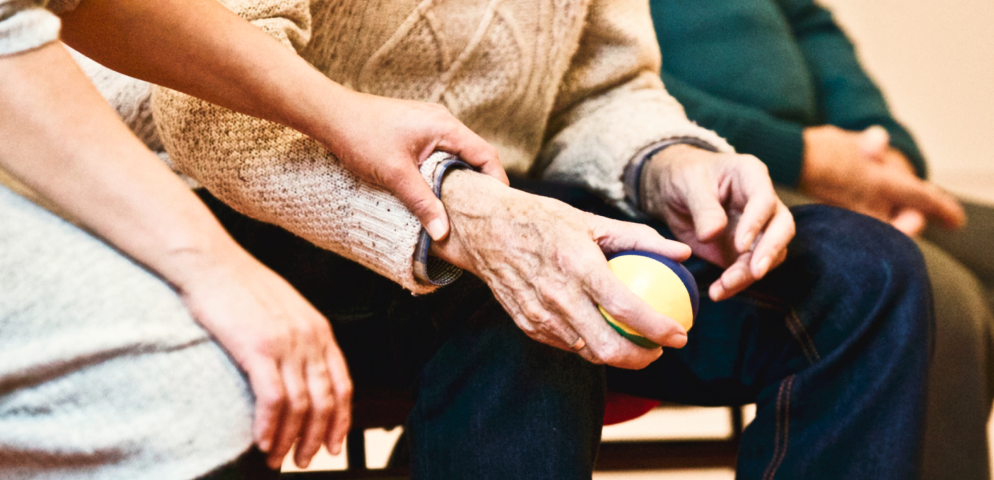Exploring the language of an ageing society
The everyday language of old age can be controversial and inadequate. Descriptions like elderly, ageing or frail are often seen as ageist and debate about appropriate language can become an unwelcome distraction in efforts to promote equality and inclusion for older adults.
So how can we adequately communicate the complex and diverse experience of living longer and the variable consequences of longevity?
How old is old?
There are lots of different ages at which adults are considered or labelled as being old. Some definitions start at 50 years but traditionally, 65 years is accepted as the start of older age in the UK. This is largely because it was historically the official retirement and state pension age. Of course, that no longer applies given the rising state pension age, and the fact that more people are working and living for longer than ever before.
Looking back, old age has altered over the centuries. At the turn of the 20th century, life expectancy in most developed nations ranged between 45 and 50 years. Nowadays, average life expectancy is almost 80 years for men and 83 years for women and there are growing numbers of centenarians.
This shift has prompted new terminology to identify those living longer than average. The “the oldest old” are people aged 85 years or more and they are the fastest-growing age band in Britain. The numbers of “the oldest old” are projected to double from 1.6 million in 2018 to 3.6 million in 2050.
Some analysts have suggested that we should define “old” age based on average remaining life expectancy (RLE). In 1911 a woman aged 60 could expect to have 15 years of RLE, in 2017 the equivalent age would be 72 years – quite a difference.
Healthspan or lifespan?
Unfortunately, chronological definitions of old age fail to capture the differences in our health which can occur with advancing years. Health experts are more aware of these differences and reflect them in concepts like healthspan rather than lifespan.
They use the term “healthy life expectancy” to describe the years a person can expect to live in good health, rather than with a disability or in poor health. Recent data for men and women in England indicate that this figure is around 63 years. Another description is “disability free life expectancy” which is the average number of years a person can expect to live without a long lasting physical or mental health condition or disability that limits daily activities. Current figures for England show that this is slightly higher for men (62.7 years) than women (61.2 years). Both categories convey an average healthspan far shorter than our average lifespan.
Public health policy is increasingly concerned with healthspan, encouraging individuals to make healthy choices which can aid in postponing, slowing, or counteracting our natural ageing processes. A popular term to describe these activities is healthy ageing and there is growing interest in how to #agewell or #ageproof your home, body, heart, skin etc
Progressive health conditions contribute to decline in later life
Long term conditions are those which progress over time and they play a significant role in our health and life span. As the years pass, the symptoms of progressive diseases get worse and the organ damage becomes more severe. Medical and other health improving interventions can help to slow the progression of long term conditions but with the passage of time, these interventions become less effective and the likelihood of experiencing advanced disease grows. Typical examples include conditions like dementia, chronic lung diseases and heart or circulation problems. The ill health – physical and mental -associated with these conditions makes it more difficult to do everyday tasks and activities like dressing, shopping, bathing or eating (see our book case for more information). As a result, those affected find it difficult to live independently.
Long term conditions usually become apparent, during mid life but the advanced stages are more likely in “older age” although not caused by ageing. The combination of ageing related decline and severe longterm disease can be particularly detrimental to health.
Ageing and Age related decline
At some point, our bodies begin to show signs of ageing but there is no set age when this starts and no set pattern for the way in which it happens. The ageing process results in a decline in physical and/or mental capacity but the nature and extent of this decline and the rate at which it occurs is different for us all. Some 80-year-olds have capacities similar to many 30-year-olds whilst others experience significant decline at much younger ages. The result is that people of the same age can have dramatically different needs relating to the extent to which the ageing process has affected them.
Research shows that age related decline results from the accumulation of a wide variety of molecular and cellular damage affecting our ears, eyes, joints, bones and major organs. Typical consequences include hearing loss, poor vision, and impaired mobility with an increased susceptibility to everyday problems such as infections or life related stresses.
Those affected by the ageing process are more likely to experience several ageing related conditions simultaneously. This is known as multimorbidity and can result in complex health conditions, also known as geriatric syndromes, such as frailty, urinary incontinence, falls, delirium and pressure ulcers.
Ageing related changes do not follow a linear or consistent pattern, and they are only loosely associated with a person’s chronological age. Other factors such as life transitions are thought to play a key role.
Given the relatively weak association between age in years and levels of age-related decline, it is unhelpful to assume that people in the same age band (eg over 65) share the same needs. The lived experience and ambition for those who are relatively untouched by the ageing process will be very different to those whose capacity has been compromised.
Older parents, ageing or elderly parents?
Anyone aged over 60 years is accelerating towards official old age measured in years. So what language can we use to respectfully and effectively distinguish between (the majority) of older people who do not have age related decline complicated by advanced long term conditions from those that do?
In The Carents Room, we intentionally use the term “ageing” in a biological sense to describe those affected by the ageing process. We also use the term “elderly” in a literal sense based on the dictionary definition i.e. “showing signs of age” to depict those older adults who through decline or disease are no longer able to fully live independently.
So when we consider elderly or ageing parents, we are not being ageist, we are intentionally focussing on promoting inclusion and equality for those who have declining capacity as a consequence of their advanced years.






